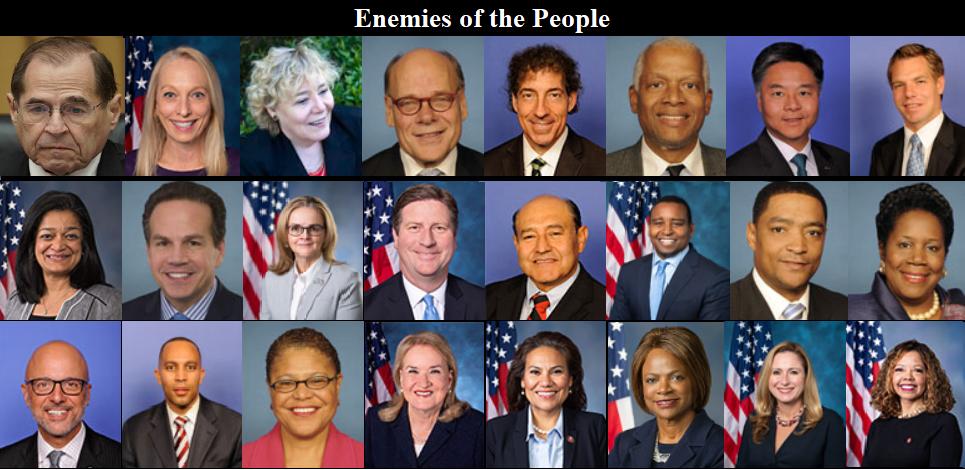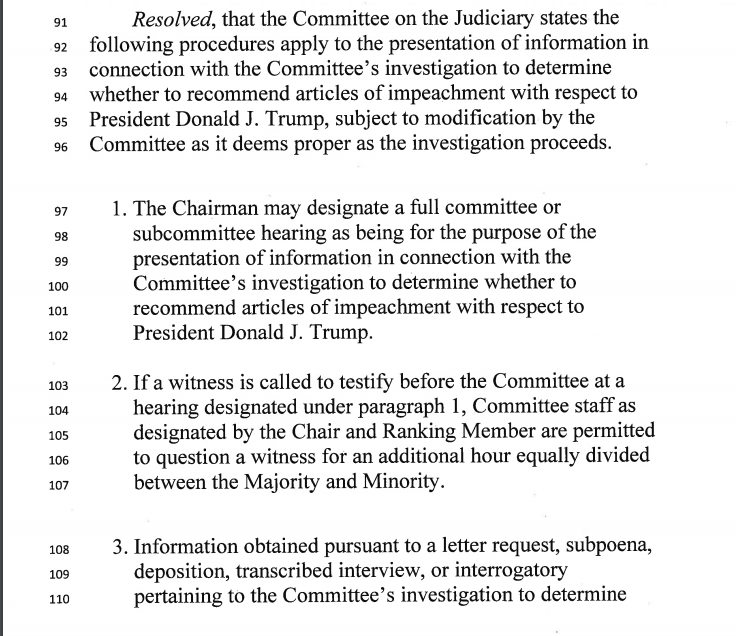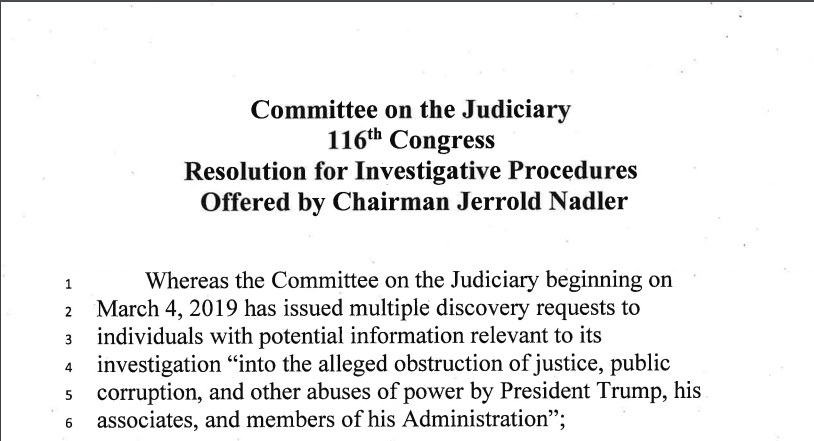The House Committee on the Judiciary just voted on this resolution:
docs.house.gov/meetings/JU/JU…
I will start with a summary of the doc, then offer analysis.
The Doc opens with a timeline of the impeachment inquiry so far:
💠March 4: The Committee issued discovery requests for its investigation “into the alleged obstruction of justice, public corruption, and other abuses of power by President Trump, his associates, and members of his administration.”
💠May 8: The Committee recommended that the House hold Barr in contempt for refusing to comply with a subpoena.
💠June 11: Passed Res. 430
(430 authorized the Chairman to initiate or intervene in any judicial proceeding before a federal court. . .
. . . to petition for disclosure of information, and affirming the duty of Barr and McGahn to comply with subpoenas.
More on that here: congress.gov/bill/116th-con… )
💠July 10: The Committee authorized subpoenas for grand jury information and conduct hearings with McGahn.
💠July 26: The Committee filed an application with the D.C. District Court for release of grand jury material. Nadler issued procedures governing Member access to grand jury information.
💠August 7: Committee filed a lawsuit to enforce its subpoena power against McGahn.
💠August 22: In a letter requesting chairs of other committees to share information they have obtained, Nadler noted the committee’s authority and intent to conduct an investigation to determine whether to recommend articles of impeachment.
💠Nadler may designate any full committee or subcommittee as part of the impeachment investigation
💠An additional hour is to be provided for questioning witnesses, divided between the parties.
💠 Questions during the additional hour can be conducted by “Committee staff, as designated by the Chair and Ranking Member."
Translated: Staff lawyers can follow up with questions to get past political speeches and grandstanding.
💠Information obtained is considered “executive session material” unless otherwise determined by the Chair in consultation with the Ranking Member.
💠The Chair may issue additional procedures governing access by other non-committee members to executive session materials.
I understand Executive sessions to be closed sessions.
💠President’s counsel may respond in writing to information and testimony presented to the Committee in open session.
(Trump will think this means HE should respond in writing on Twitter 🤣🤣)
💠The Chairman, after consulting with the Ranking Member, may invite the president’s counsel to review and respond in writing to executive session materials.
End of summary of the resolution passed today.
There you go: Twitter Legal Cliff Notes
Coming soon: Analysis.
Bonus: This section will help prepare you for the Twitter Bar Exam.
Q: Is this resolution legal or political?
A: Both
It’s legal because procedure is important.
Fair procedures say: "This is not a Kangaroo Court."
Source: “Interview with Ruth Bader
Ginsburg,” Academy of Achievement, Aug. 17, 2010.
The Dems don't want their proceedings to look like Trey Gowdy's Benghazi debacle where the GOP were targeting a political opponent.
It's also smart politics to make clear the proceedings will be fair.
Even from a purely political (not legal or moral) stance, it makes sense to get all the evidence together before making pronouncements.














